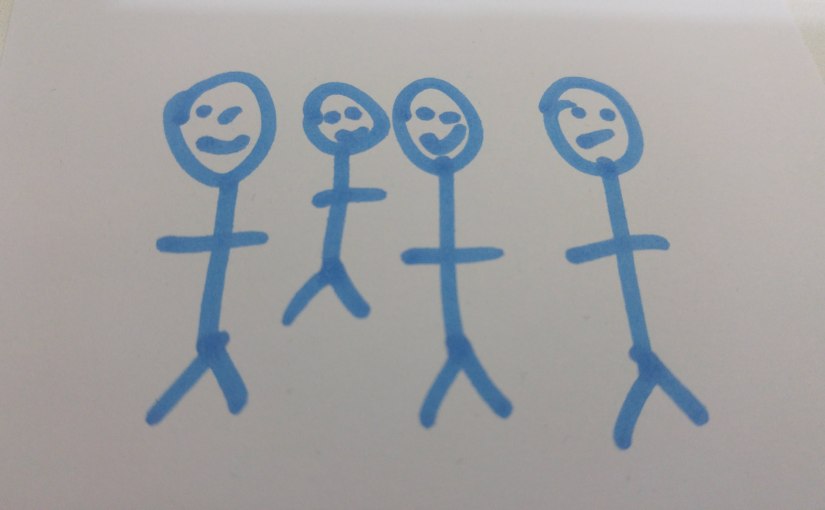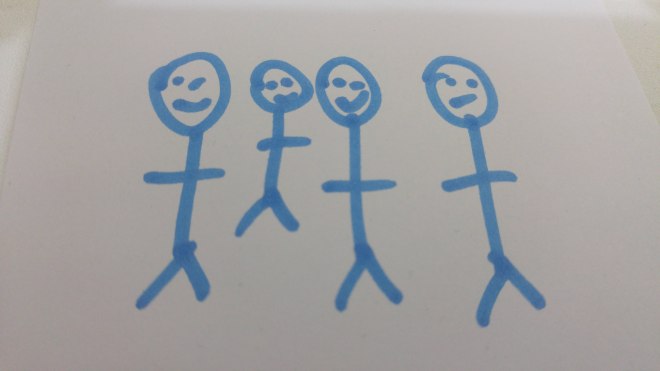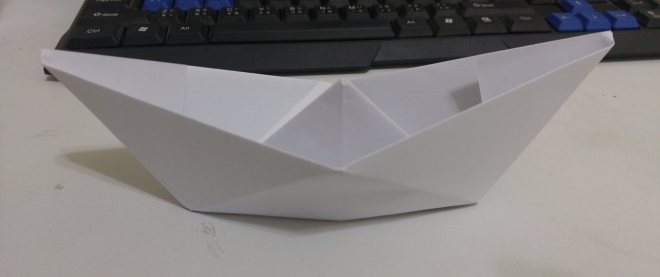Disclaimer: This is going to be a bit different as far as foodie memoirs go, it’s mostly about how ADHD contributed to me becoming a foodie.
Focus is Impossible
Throughout my grade school experience I constantly struggled to stay focused.
I can’t say I remember a single class in grade 6 where I wasn’t constantly on the verge of dozing off, or zoning out. This was caused by a mix of apathy, poor sleeping habits and the profoundly difficult task of staying focused.
One day in drama class we were performing our little three-minute fight scenes and, as I was in the midst of reacting to a slow-motion punch, I completely zoned out. Luckily it was the end of the scene. Unluckily, the teacher then proceeded to ask us questions about the scene in front of the class. I didn’t hear or react to a single word that came out of his mouth. Needless to say it was painstakingly embarrassing.
School days were filled to the brim with day dreams and once I got home my parents – who deeply value education – would question my apathetic self about every little detail of my day.
Each night during the week I was restricted from playing video games – that’s not to say I didn’t play anyway while my parents backs were turned (sorry, Mom and Dad) – and watching TV was only for after my work was done.
Only through constant intervention from my father who oh so patiently dealt with my inability to focus did I actually get work done during much of high school.
When he wasn’t in the room watching that I was actually doing my work (while he did his paperwork beside me) I was either playing games on my computer, zoning out, or making up fantasies about being in some far away place (the birth of the writer in me I suppose). It was impossible to motivate myself to get started on a task and even if I miraculously did I would frequently get side-tracked.
I should note here that I didn’t do poorly in school for the most part – when I did do the work I’d do a damn good job, but getting me to actually do it was like pulling teeth. I never really had problems with my grades until the start of high school.
You may be thinking, “Doesn’t mean there’s something wrong, tons of kids don’t care about school and zone out all the time.” You’re right, which in part was what made it so hard to see there was a greater problem until later on.
Hidden Troubles
Up until late in my high school experience mental health wasn’t really addressed as being a serious problem that affected the learning experience. ADHD, anxiety, depression and more were all misunderstood by the student body who stigmatized individuals who had them. After a good friend of mine was diagnosed with ADHD he was explaining the struggle of staying focused and someone repeatedly argued that he was simply being lazy and needed to just get the work done. Yeah, high school kids are assholes.
Before entering grade 11 many students in my year were getting academic testing done. I’m not entirely sure what sparked this sudden acknowledgement en-masse of the effects of mental health; it was probably the result of a diagnosis of a kid of an influential parent or my school following a trend among other private high schools in the area. I went from being entirely in the dark about mental health to suddenly seeing it all around me – people getting extra time for ADHD, writing in different rooms for anxiety.
Awareness doesn’t equal understanding though, so the stigma continued.
I was not among the vast number of people who underwent academic testing that summer – people would look at me differently! And so, throughout grade 11 I again struggled to stay focused – leading to many arguments with my parents, sleepless nights and a feeling of utter helplessness.
Thankfully, in the summer before grade 12 I finally did get academic testing done and was diagnosed with a form of ADHD. This was done by a rather judgemental psychiatrist who made me feel awful about it, telling my parents about my potential for failure and inability to focus like I was some dimwit unable to grasp her words and therefore not worthy of being a part of the conversation. I was left with an even greater feeling of stigma, which only furthered my inner-need to hide my mental health problem from as many people as possible.
No Appetite
Hiding my ADHD continued into first year university. I was struggling to cope with the shock of living alone in residence. I was hours away from home and from home cooked meals.
At this point I medicated with prescribed Concerta (similar to Adderal/Ritalin) to manage my ADHD.
One of the biggest side effects of this drug is complete lack of appetite. On top of learning how to feed myself, I was also constantly forgetting to do so. The pangs of hunger that come when you skip four meals in a row? They didn’t come. Even when I realized my lack of eating I had to force myself to consume food. Eating more than a few bites when I should have been starving felt like being brought a personal chocolate cake after a large feast – a part of you wants it, but you cannot bring yourself to take a single bite.
Needless to say, I lost a ton of weight in that first semester of university.
Remedy
Winter break rolled around and I went to my doctor for a check-up. Skipping most meals and eating very little food took its toll on my body. ‘You’re borderline underweight,’ my doctor said. No surprise there.
I stopped taking Concerta and later began alternative treatment through the Listening Centre in Toronto. Paul Madaule is a miracle worker. (After the several-month-long weekly treatment I received there my ADHD was, and still is, about 80-90% better).
But there was still the problem of my weight.
Those of you who have been to Toronto may be familiar with the burger joint ‘The Burger’s Priest’, arguably the best burgers in the city. You may also be familiar with their secret menu, which among other interesting creations contains a burger called ‘The Four Horsemen of the Apocalypse‘ – two cheeseburger patties, two vegetarian patties (two portobello mushroom caps stuffed with a blend of cheeses and deep fried) and grilled cheese buns. Yes, it’s insane. Well, that’s what I ate on the way home from the doctor’s office that day. I’m sure it’s not what he had in mind, but hell, I was finally eating something.
This was the first time I purposely sought out and ate an interesting food item I had heard about from the Toronto foodie community. The first of many I should say.
From that point onward, throughout my winter break, I visited several other restaurants with rich and filling foods, eating to my heart’s content both at home and at The Burger’s Priest. This jump-started my drive to seek out the best and most interesting foods that Toronto had to offer. As I regained the weight I lost, a new part of me started to stir.
Finally, I was a foodie.






